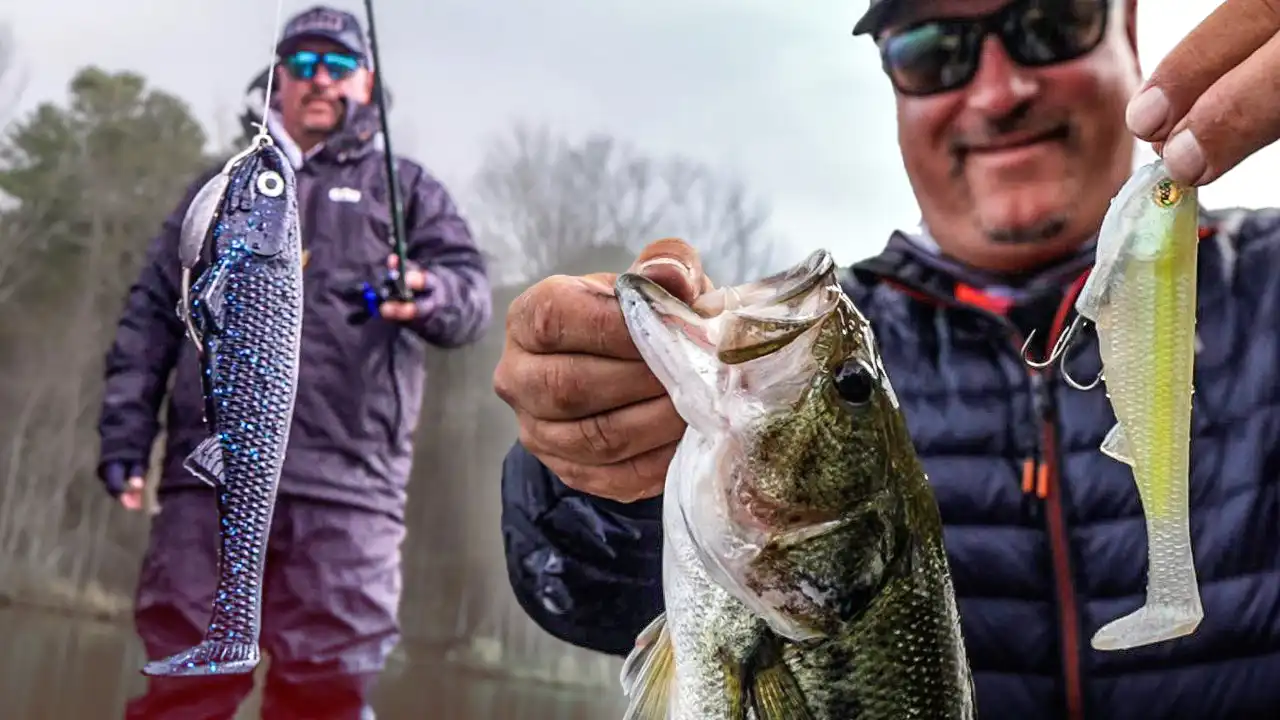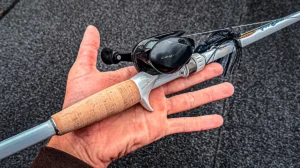Swimbait expert Fred Roumbanis discusses how and when he fishes his two favorite swimbait styles: weedless swimbaits and line-through soft-body swimbaits. Both are most commonly used in shallow water applications, although weighting can extend each’s functional range. Roumbanis breaks down the key differences and uses of weedless and line-through swimbaits. His guidance will help you make the right bait and rod setup choice for the conditions you’re faced with.
FEATURED TACKLE (retail links)
- SWIMBAIT (weedless) – Optimum Baits Weedless Boom Boom Swimbait: Buy at Tackle Warehouse
- SWIMBAIT (line-thru) – Optimum Boom Boom Line-Thru Swimbait (4- and 5-inch): Buy at Tackle Warehouse
- TREBLE HOOK – Hayabusa TBL930 Treble Black Nickel Hook, size 2: Buy at Tackle Warehouse
- Conventional Soft Swimbaits: Buy at Tackle Warehouse
- Line-Through Soft Swimbaits: Buy at Tackle Warehouse
WEEDLESS SWIMBAIT: A TOOL FOR THE THICK
Weedless swimbaits can be fished through relatively heavy cover with no or minimal fowling. Roumbanis reaches for a weedless-rigged setup when bass push shallow around cover that would otherwise fowl exposed hooks. He uses a stout rod and at least 17-pound fluorocarbon line for the weedless approach to deliver solid hooksets and control over the bass.
LINE-THROUGH SWIMBAIT: FINESSE IN FOCUS
Contrasting with its weedless counterpart, the line-through swimbait, equipped with a treble hook, excels when you want to slow your presentation. Roumbanis prefers this slower retrieve (more time in the strike zone) when bed fishing for bass. The line-through performs best in open water environments, as a belly or back-positioned treble hook tends to grab whatever it contacts. Roumbanis uses a lighter line for depth control, matched to a softer rod to keep the bass buttoned with the single treble hook.
CONCLUSION: SWIMBAIT SELECTION STRATEGY
Whether facing thick cover or targeting bedded bass in open water, keep a weedless and line-through swimbait at the ready. Roumbanis’ expert insights not only clarify when and how to use each type but also equip anglers with the knowledge to make the most out of these versatile lures.












